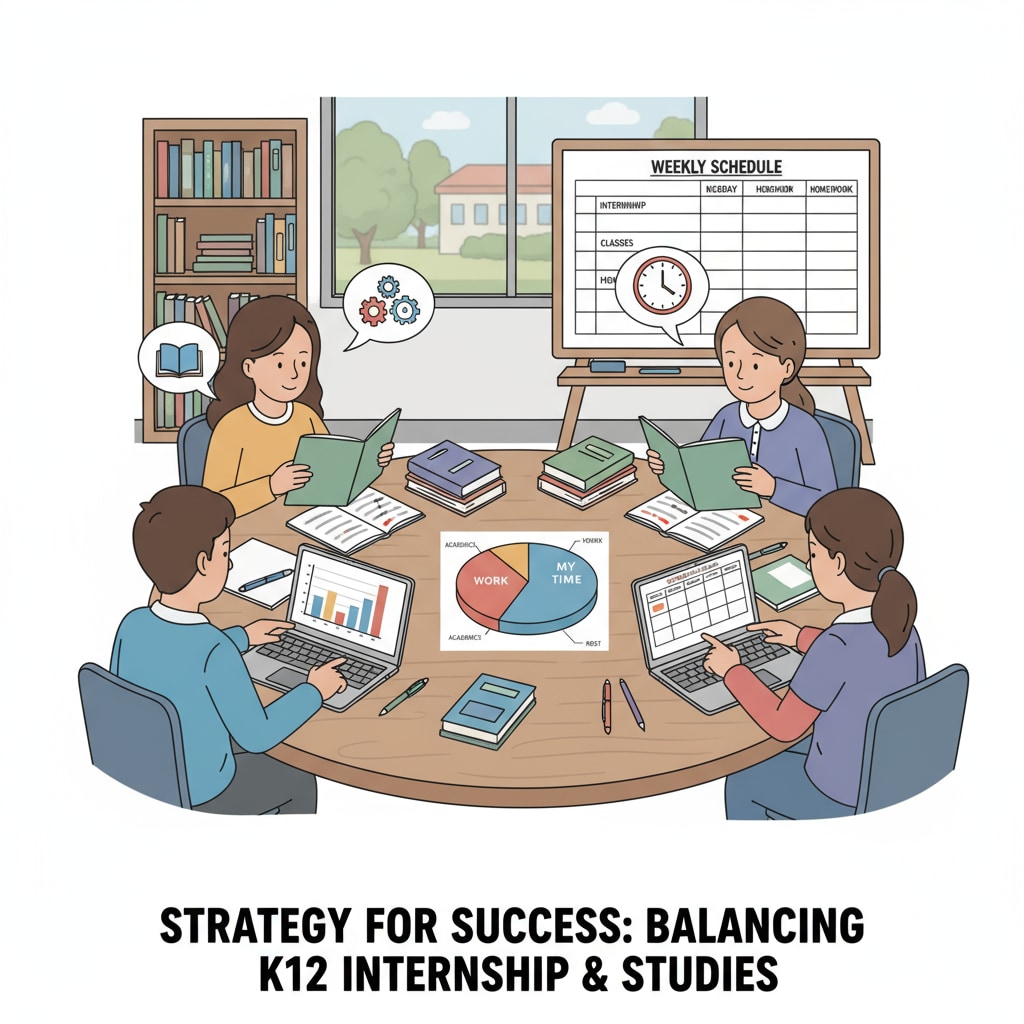Internship workload, study time balance, and work time adjustment are crucial aspects that K12 senior students often grapple with. As they strive to gain valuable career experience through internships while maintaining academic progress, the task of finding equilibrium can be quite daunting.

For instance, many students find themselves taking on more internship responsibilities than they can handle, which in turn affects their study time. This problem is not unique and has been a topic of discussion among educators and students alike. According to Education.com, proper time management is the key to overcoming these challenges.
The Dilemma of Overloaded Internship Workloads
When K12 students engage in full – time internships, they often encounter excessive workloads. Employers may expect them to perform a variety of tasks, from administrative duties to project – related work. However, this can leave students with limited time for their academic studies. As a result, their grades may suffer, and they may struggle to keep up with the curriculum. For example, a student interning at a marketing firm might be required to create detailed reports and assist in event planning, which could take up several hours a day. This reduction in study time can lead to a lack of understanding of academic concepts and poor performance in exams.

Strategies for Re – planning Time
One effective way to achieve study time balance is by re – planning time. Students should start by creating a detailed schedule that allocates specific time slots for internship work, studying, and relaxation. In addition, they can break down large tasks into smaller, more manageable ones. For example, instead of trying to study for a big exam in one long session, they can study in short intervals over several days. This approach not only helps in better retention of information but also reduces stress. Moreover, students can use time – management tools such as calendars and to – do list apps to stay organized. According to Verywell Mind, these tools can significantly improve productivity.
Communicating with Employers for Work Time Adjustment
Another important strategy is to communicate with employers about work time adjustment. Students should be honest about their academic commitments and explain how excessive workloads are affecting their studies. For instance, they could request flexible working hours or a reduction in non – essential tasks. In most cases, employers are understanding and willing to make accommodations. By having an open conversation, students can find a middle ground that allows them to meet both their internship and academic obligations. This way, they can avoid burnout and ensure they are making the most of their internship experience while still excelling in their studies.
Readability guidance: The key points have been presented in short paragraphs and lists for easy comprehension. Each H2 section offers practical strategies, and the use of transition words like ‘however’, ‘for example’, and ‘in addition’ helps in maintaining a smooth flow. The passive语态 has been kept to a minimum, and long sentences have been carefully structured to enhance readability.


